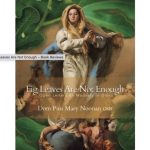Written by Kathy Clubb
The concept of the university was envisaged some 800 years ago, and was established as universitas magistrorum et scholarium – a community of teachers and scholars. Established by communities of priests and monks, these universities were primarily Scholastic in nature, employing the classical method of dialectic, which allowed students to form their minds according to the twin pillars of faith and reason.
Today, academic institutions of higher learning bear little resemblance to their medieval forebears. Faith has been obviously jettisoned from largely secular universities, and in many cases, reason has gone out the window alongside its twin.
What happens, then, when groups of students & academics have opposing points of view, or live by differing moral codes? Whereas in the past, moral differences would be argued through reasoned debate, these days, universities are hotbeds of ‘cancel culture’. This culture, in turn, has become a driving force behind utter dependence on an emotional, rather than rational, response.
Australia, like its Western counterparts in the US & the UK, is seeing this cancel culture primarily targeting conservative institutions and moral theories. Canberra’s Australian National University is the current locus of the clash of cultures, after complaints were made at the presence of a pro-life stall in February. While some in the student body favoured the pro-life stall, the ANU Student Union changed their policy in late July to disallow the pro-life presence at future student events.
In an appalling display of ignorance, the Student Union policy also extended to banning displays from the Australian Defense Force.
The ban has drawn the ire of federal Education Minister, Alan Tudge. Pushing the largely progressive student unions to tolerate more conservative points of view, given that their fees are compulsory, Tudge has stated that he has considered applying for a new free-speech code, which the universities themselves are required to adopt. He has also considered cutting off government funding to student unions that fail to allow freedom of expression.
But these clashes are nothing new. In 2018, the pro-life student group LifeChoice Australia was banned at the University of Notre Dame (Fremantle) and was denied affiliation at the Sydney campus in 2020. Similarly, the Australian Catholic University denied LifeChoice their affiliation in Strathfield for several years. Established pro-life clubs in other universities have been threatened with un-affiliation by Student Unions and University boards ad nauseam.
In almost all these cases, the universities have rejected LifeChoice’s affiliations on the grounds that they would be “divisive” or “harmful” to the wellbeing of students.[1]
The relentless ‘cancelling’ of these pro-life organisations have obvious repercussions in the real world. For one, pregnant students have less places to turn if they’re scared or unsure about their pregnancies. But the message that this is sending students who may be on-the-fence about ethical issues is that there is only one opinion tolerated – that set by the upper echelons of the universities – and anything that goes against their worldview will result in cancellation, or worse.
Christians have a lengthy history of courageous willingness to engage in meaningful debate. “Be ready”, says St Paul, “to satisfy everyone that asketh you a reason of the hope that is in you”. A courageous defense of opinions draws its strength from being grounded in the truth. This is especially true for Christians, who draw from the capital-t Truth.
It is interesting to consider the correlation – or rather, lack thereof – between education and knowing the truth. In centuries past, even the most ignorant peasant had a working knowledge of the realities necessary to be a productive member of society. Religious peasants knew what was necessary to gain heaven. They may not have had a theological defence of transubstantiation up their sleeves, but their knowledge was gained through utter faith. They may not have been able to identify intricacies of embryology, but they knew that an unborn child was still a child.
When it came to the knowledge of simple truths, as well as of The Truth, the person of Jesus Christ, the medieval intellect was far superior to even that of most contemporary students. They would not have shied away from debates surrounding important issues. And yet students, encouraged by their lecturers and staff, will now shun anyone with an opinion different to their own. A seeming contradiction in a world apparently run rampant with moral relativism.
There is only one reason why students would shun the opportunity to engage with a differing ideology – they know that their personal philosophy, ideology or worldview is likely based on lies and cannot withstand the scrutiny of Truth. The presence of pro-life organisations is particularly galling, as their worldview is, almost without exception, used to justify a hedonistic lifestyle.
Until our universities become institutions that serve the purpose of an honest pursuit of truth, they are doomed to remain in their reactionary world of emotivism and cancel culture. Their creed is untenable, and will inevitably come crashing down. But until then, any group that represents an unpopular opinion will continue to experience censorship, as faith and reason gather dust in the once-great world of academia.
[1] https://www.theaustralian.com.au/higher-education/notre-dame-students-say-no-to-antiabortion-life-choice/news-story/1202cd45f627a7c3c2e706e866fb3e72









